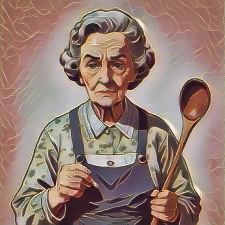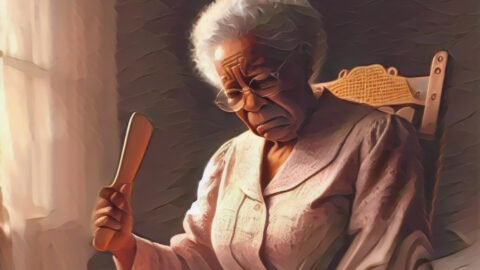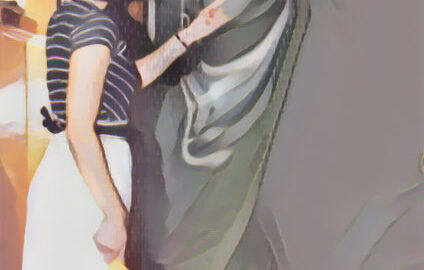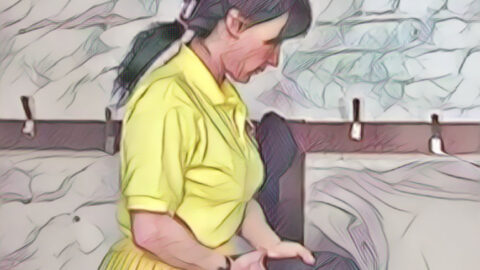(gap: 1s) My recollections commence in the tranquil heart of a modest English town, where the days unfolded with a gentle leisure and the air was ever redolent of freshly mown grass and the faintest trace of woodsmoke. It was an era marked by innocence, by laughter that rang across sun-dappled meadows, and by the acquisition of wisdom in the most unanticipated of circumstances.
(short pause) At that tender age, I was possessed of a most inquisitive nature, and it was this very quality that led me, one radiant afternoon, to the shed at the far end of our garden. There, in the half-light, stood my father’s two-stroke motorcycle—a contrivance of such promise and adventure that it seemed to beckon irresistibly.
I had been instructed, in the clearest possible terms, that I was not to ride the motorcycle upon the public thoroughfare. Both the law and my parents’ sound judgement concurred that I was far too young for such a privilege. Yet, as the house lay silent and the world outside appeared so inviting, temptation proved overwhelming. I reasoned, as children are apt to do, that a brief circuit of the block would be of no consequence, and surely no one would be any the wiser.
(pause) With my heart thumping in my chest, I wheeled the motorcycle onto the lane, the engine sputtering to life with a noise that, in that instant, seemed impossibly loud. The wind rushed past my ears as I rode, exhilaration mingling with a mounting sense of apprehension. For, as I rounded the final corner, I beheld my mother—standing at the gate, her arms folded, her countenance grave.
(short pause) She had been at home all along, observing from the window as I embarked upon my forbidden escapade. There was no anger in her voice as she summoned me indoors, only a quiet disappointment that wounded far more than any raised tone. I returned the motorcycle to its place, my hands trembling, and followed her into the house.
My mother, though gentle by disposition, held a firm belief in the necessity of discipline. She had always maintained that a child must learn the consequences of his actions, and that such lessons, though severe, were imparted out of love. Most often, when I transgressed, she would simply smack my bottom with her hand—a punishment that, while stinging, was familiar and quickly over. But on rare occasions, when she felt the lesson must be especially memorable, she would reach for the slipper. Today was one of those rare occasions.
(pause) She seated herself upon the edge of the sofa and beckoned me to her side. Her face was composed, her eyes unwavering, and her lips pressed into a line of quiet resolve. Then, with a calmness that bespoke both ritual and purpose, she reached down and, with deliberate care, slipped her foot from its carpet slipper. The gesture was neither hurried nor theatrical; rather, it was performed with the same quiet gravity as one might employ in preparing a lesson or setting a table for tea.
The slipper itself was a humble affair, fashioned from soft, worn leather that had darkened with age and use. Its sole, once sturdy, now bore the marks of countless steps taken across the years, and the edges were frayed, a testament to its long service. The interior was lined with faded tartan fabric, its once vibrant colours now muted, and the heel was slightly flattened, moulded to the shape of my mother’s foot. It was an object of both comfort and authority, a symbol of the household’s order and the lessons imparted within its walls.
She regarded the slipper for a moment, weighing it in her hand as if to impress upon me the seriousness of the moment. In our household, the removal of the slipper was not a matter of anger, but a solemn indication that a line had been crossed and a lesson must be learned. It was, in its way, a ceremony—one that underscored the moral weight of the occasion and the loving intent behind the chastisement to follow. With the implement thus chosen, she guided me across her lap, my cheeks aflame with shame and remorse. The room was silent save for the faint rustle of her skirt. Then, with a measured breath, she commenced.
The first smack landed with a sharp report, reverberating in the stillness. I gasped, the sting blossoming across my skin, and before I could recover, another followed—then another, and another. Each smack was delivered with unwavering purpose, neither hurried nor cruel, but with a severity that left no doubt as to her intent. I counted them, each one a lesson: one, two, three, four, five, six, seven, eight, nine, ten. By the fifth, my eyes brimmed with tears; by the eighth, a sob escaped my lips. Yet I did not plead or struggle, for I understood, even in my distress, that this was justice, not malice.
The sound of her hand meeting its mark was crisp and unrelenting, mingling with my subdued sniffles and the rapid beating of my heart. My legs kicked involuntarily, and my fingers clutched at the fabric of her dress. Throughout, my mother’s voice remained gentle, murmuring words of guidance between each smack: “You must learn, my dear, that actions have consequences. Trust is a precious thing, and once broken, it is not easily restored.”
At length, the punishment ceased. My bottom throbbed with a heat that seemed to radiate through my very bones, and my face was wet with tears. Yet as she lifted me upright, her arms encircled me in a tender embrace. She pressed my head to her shoulder and spoke softly of trust, of responsibility, and of the importance of obeying those who care for one. Her voice was low and steady, and in it I heard not anger, but a profound and enduring love.
(long pause) Such were the lessons of my childhood: stern, perhaps, but always tempered with kindness. And as I reflect now, I perceive not only the discipline, but the care that underpinned it—a care that shaped my character, and for which I shall always remain grateful.



























































